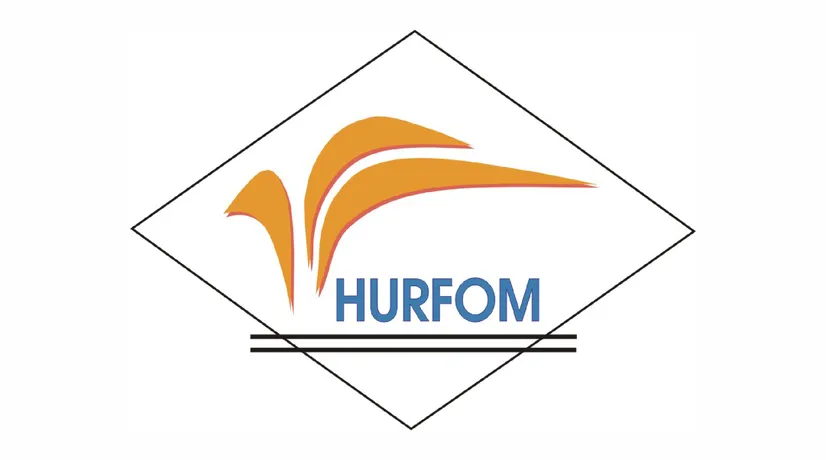New Report and Documentary “The Attran River to Pyar Taung” Highlights the MCL Cement Factory’s Damage to Local Environment and Livelihoods
27 November 2018

HURFOM joined together with Pyar Taung Region Social Development Association to launch a new report and documentary—The Attran River to Pyar Taung—on November 15th 2018 at the Rehmonnya Hotel in Mawlamyine, Mon State. The event was attended by around 150 people, including community-based organizations (CBOs) and locals from Kyaikmayaw Township. The report highlights the voices of locals negatively impacted by Mawlamyine Cement Ltd.’s (MCL) coal-powered cement factory and the resulting effect on natural resources and the environment along through Attran River and throughout the Pyar Taung Region in Kyaikmayaw Township, Mon State.
“We have collected [almost] two years’ worth of data to write this report. We also did research about what kinds of careers locals had before the company [MCL] built the [cement] factory. What is going to happen in future? Is it true that the living standards of the rural people have improved after building this factory?” said A Shin Baddanda Aow Ba Tha, a monk from Ni Ton monastery, from Ni Ton village, Kyaikmayaw Township.
The event discussed the survey of the current status of land, water, and other natural resources in the Pyar Taung Region, explaining the impact of the cement factory and coal-fired power plant, showing the documentary and providing a summary about the impact on Attran River from the vessels used to transport coal to the coal plant which powers the cement factory.
Many farmers in the Pyar Taung Region lack official Land Use Certificates to verify ownership of their land and reported being pressured by MCL to sell their land to the company. In 2015, MCL built the coal-powered cement factory despite widespread local opposition. Farmers lost their land, natural resources were destroyed, and locals reported difficulties in accessing fruits for traditional medicinal purposes and materials such bamboo for construction materials after the erection of the plant.
In addition, soil erosion and water displacement from passing ships, as well as noise pollution from the ship’s engines, have negatively impacted nearby communities and houses have been destroyed and livelihoods gained through river actives, such as fishing, have suffered as a result.
Moreover, according to the report, land, water, forest, and further environmental destruction will only continue in the future as air pollution from the coal-powered cement factory, dust from the stone mining factory, and ships using the Attran river on a daily will continue to take their toll.
“We don’t really have many cement factories in Burma. There are a lot of cement factories in Thailand. We have seen that many people around the world receive trouble because of coal-powered cement factories. They should not destroy limestone mountains using large machinery as it destroys the natural beauty”, said the writer, Dr. Khin Maung Nyo.
According to the report, the Attran River has about 140 villagers who rely on fishing for their livelihoods. Previously they could catch about 700 peittha (1 peittha = 1.65 kg) per year; however, during 2015 to 2018, after MCL built the cement factory, fishermen have reported only being able to catch 140 peittha per year—an 80% decrease.
“I am not sure when the monetary income of the fishermen will [completely] collapse, and the locals’ houses will [start] floating through the river [because of the soil erosion]. We are worried about this. We never see animals from the river anymore. We think that they just stay in deeper in the water because of the [large] ships. We have collected data to write this report for about 18 months,” said A Shin Badanda Nalrada, a monk from Damalawka monestary, in Mawlamyine.
Currently, not only is MCL operating in Kyaikmayaw Township, but also June Cement Industry Ltd. and Zaykabar Co. also entered into Kyaikmayaw Township to start mining limestone resources for their factories.
View this original press release HERE.
၎
င
၎
၎
Announcements
28 February 2025
Asian NGO Network on National Human Rights Institutions , CSO Working Group on Independent National Human Rights Institution (Burma/Myanmar)
Open letter: Removal of the membership of the dis-accredited Myanmar National Human Rights Commission from the Southeast Asia National Human Rights Institution Forum

Progressive Voice is a participatory rights-based policy research and advocacy organization rooted in civil society, that maintains strong networks and relationships with grassroots organizations and community-based organizations throughout Myanmar. It acts as a bridge to the international community and international policymakers by amplifying voices from the ground, and advocating for a rights-based policy narrative.